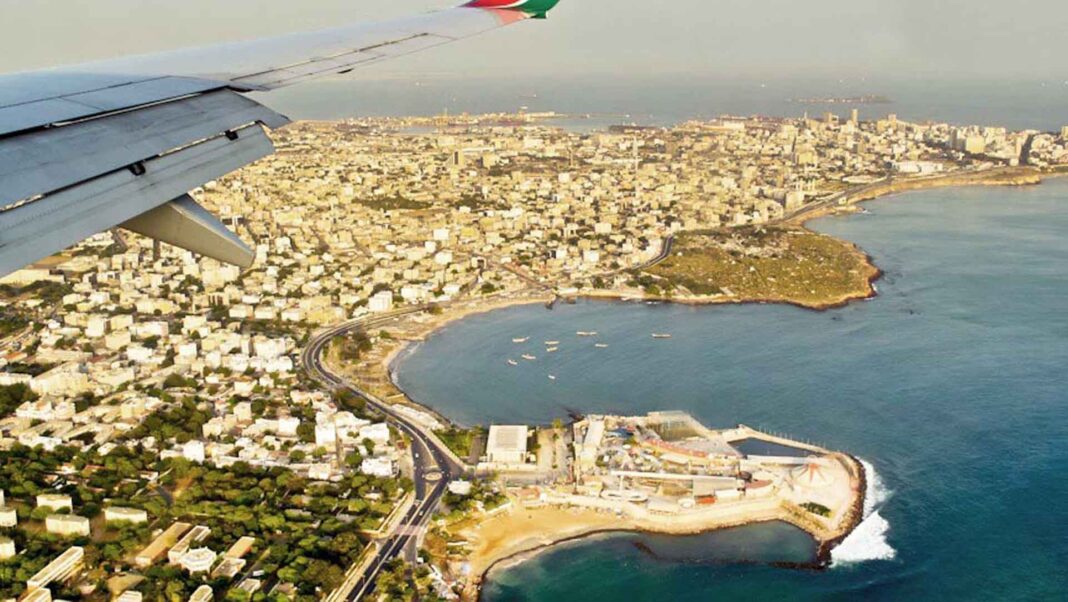SENEGAL is set to boost its position as a trade hub for Africa after it joined the World Logistics Passport, a major initiative by Dubai to link nations around the world and increase South-South trade.
The framework agreement was signed by Amadou Hott, minister of economy, planning and cooperation, the government of Senegal, and Sultan Ahmed Bin Sulayem, chairman of Dubai’s Ports, Customs and Free Zone Corporation on Friday making Senegal only the second country to formally join the scheme after Colombia.
The World Logistics Passport has been created to overcome trade impediments, such as logistics inefficiency, that currently limit the growth of trade between developing markets.
South-South trade is already worth an estimated $4.28 trillion annually, more than half of total developing countries exports in 2018, according to the WTO. But many countries in Asia, Latin America and Africa have much smaller market shares in key export products in each other’s markets compared to their shares in developed countries, indicating the potential for substantial further growth.
Senegal exports nearly half its goods to other countries in Africa. Membership of the World Logistics Passport will enable the country to access lesser tapped markets in Asia and Latin America. Senegal will also be able to grow its economy as a re-export hub. For example, trading between Latin America and Asia via Senegal and Dubai, instead of traditional routes through Europe, will reduce costs and increase efficiency.
Hott said, “On behalf of president Macky Sall and the government of Senegal, I would like to express my sincere thanks to Sultan Ahmed bin Sulayem for making this agreement a reality. The agreement is a significant milestone in our long-lasting relationship. By joining the World Logistic Passport (WLP), Senegal will strengthen and boost its position as a trade hub for Africa. We hope that this new membership of the World Logistics Passport will enable our country to access lesser tapped markets in the world and grow its economy as a re-export hub.”
Traders and freight forwarders joining the World Logistics Passport benefit from a points loyalty scheme to increase their trading volumes through member hubs, including Senegal. The benefits include cost and time savings and faster customs clearances. Member countries also share expertise to smooth trade flows around the world.
Bin Sulayem, said, “DP World believes in the potential of Senegal for further economic growth. We have invested substantially helping to build Senegal’s infrastructure, and we are committed to help Dakar develop into a major logistics hub and gateway for Africa and the world. Joining the World Logistics Passport will help Senegal achieve the ambitions of its people, leveraging the expertise we have developed making Dubai the centre of global trade.”
DP World has continued to increase its foothold in Africa by partnering with several nations. The Global trade enabler has huge presence in Senegal, Rwanda, Mozambique, Egypt, Algeria and Somaliland.
Last November, DP World signed a Memorandum of Understanding (MoU), with Namibia’s Nara Namib Free Economic Industrial Zone to develop a free economic zone for industry and logistics in Walvis Bay to support the growth of Namibia as a regional hub for Southern Africa.
The development is to help Namibia grow as a centre for industrial operations and logistics, creating opportunities and jobs across multiple sectors including agriculture, fishing, automotive and mining.
Enhancing Walvis Bay as a hub will support Namibia by increasing trade flows with surrounding markets such as Angola, the Democratic Republic of Congo, Zambia, Zimbabwe, Botswana, Malawi and South Africa. Namibia is in a prime location on the Southern Africa Development Community (SADC) Corridor.
DP World has a network of more than 150 operations in 46 countries.
DP World’s flagship development, Jebel Ali Port, is the largest container port between Rotterdam and Singapore and the 11th largest container port in the world, with an annual capacity of 19.3 Million TEU.
The Jebel Ali Free Zone Authority (Jafza) stretches across 51 square kilometres and is home to 7,500 companies employing 135,000 people, including more than 100 Fortune 500 corporations. Jafza and Jazfa-based companies handle $83.1bn in trade annually, contributing around a quarter of Dubai’s GDP.
(SOURCE: BUSIWEEK)



